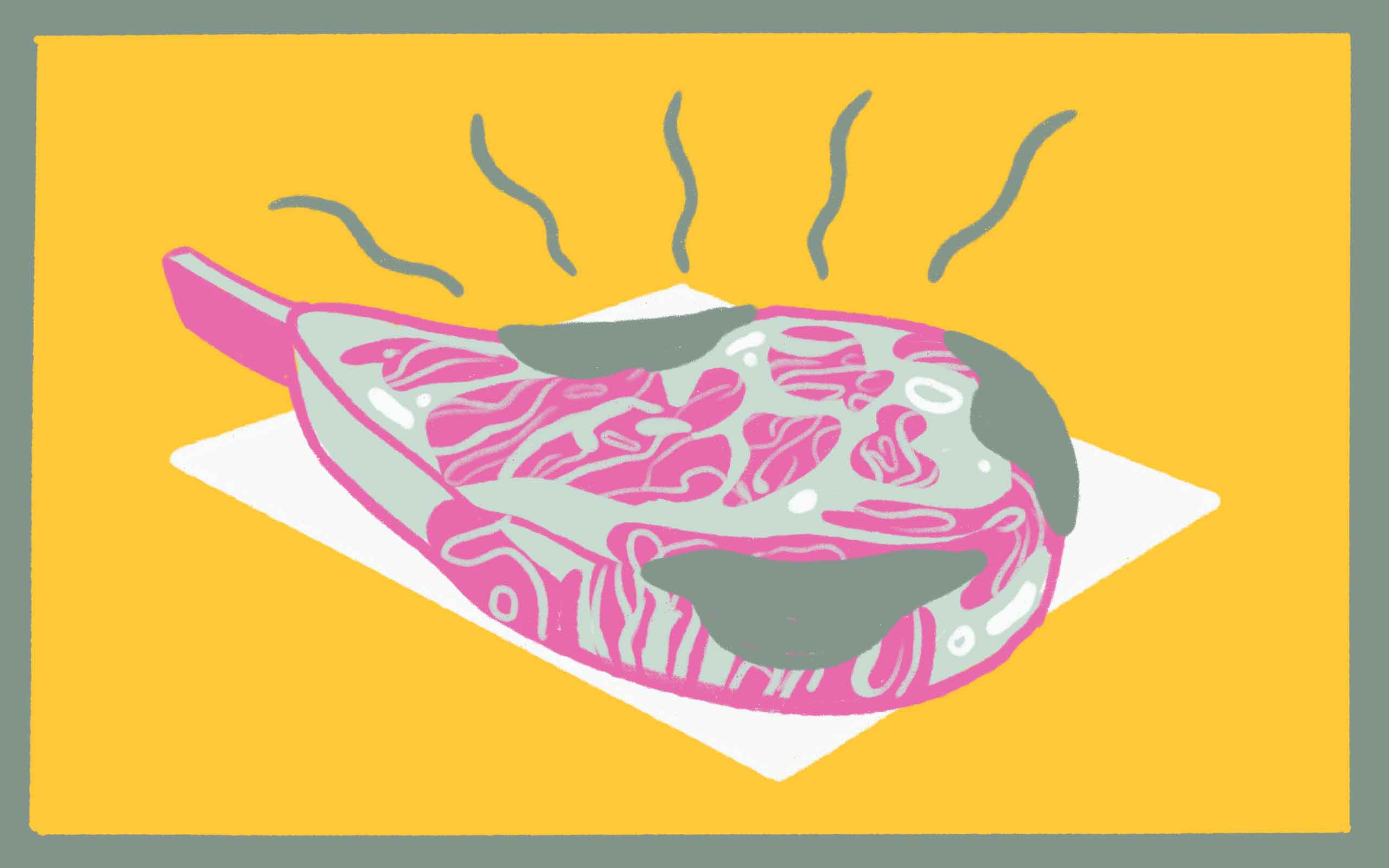Like any language around the world, Japanese has words with nuanced meanings that can't quite be translated to another language, and さすが is definitely one of them. It's often taught as a word for giving compliments, and you'll often see it translated to "as expected." However, this is a bit of oversimplification if you aim to grasp the subtleties of this strikingly unique Japanese word. Simply put, さすが is not a word for compliments. At least, not always.
If you have some exposure to Japanese in real-life, you'll encounter situations where さすが makes no sense as a compliment. "What's さすが doing in this context? It's got nothing to do with compliments!" "Why is the speaker using さすが towards themselves? Isn't Japanese all about sounding modest?" — If these kinds of questions have popped up in your head before, this article is for you.
Simply put, さすが is not a word for compliments. At least, not always.
Rather than over-emphasize the famous complimentary meaning of さすが, or simply list possible translations, in this article we'll dive in to the deeper meaning of さすが — to express that something is inevitable. さすが can express admiration for a situation that is inevitable due to a great quality (compliment). It can also highlight the inevitability of a situation that goes against expectations, due to an unavoidable cause (contradiction).
…Never heard of さすが having something to do with contradictions until just now? Totally understandable because not many resources address this other side of さすが due to its complexity and ambiguity. That's also why I'm writing a whole article about it!
That said, it's not the easiest concept to understand, but this overshadowed side of さすが is fairly common and useful to learn about. Hopefully, this article will give you a new perspective on さすが and a better understanding of its subtle nuances and implications.
- Compliment vs Contradiction
- Read Between The Lines! Context Is Not Always Visible
- Contradictory さすが Examples and Implications
- さすがに Getting The Hang of It?
Prerequisites: This article assumes you already know hiragana and katakana. If you need to brush up, have a look at our Ultimate Hiragana Guide and Ultimate Katakana Guide. If you're not familiar with the word さすが at all, reading the basics of さすが, in our grammar page would give you a great head start. Go ahead and read it now, and come back when you're ready!
Oh, also… we recorded a two-part podcast mini-series about the word さすが. In the episodes, we discuss さすが with more real-life examples, so we highly recommend you give them a listen after you finish reading this article for an even deeper understanding of the topic.
If you'd like, subscribe to the Tofugu podcast so that you can save the episodes for later and discover more Japanese related episodes.
Compliment vs Contradiction
Your expectation and the result match — This is a requirement for giving a compliment with さすが.
Not many learners are used to seeing the word "contradiction" associated with さすが, since it's not commonly explained that way in textbooks. In this section, we'll dig into the difference between the "complimentary" and "contradictory" uses of さすが. To give a brief overview, さすが is used as a compliment when something lives up to its expectation or reputation, whereas it showcases a contradiction when something goes against the expectation for a special, inevitable reason.
To understand what this actually means, it's best to compare examples. We'll begin by taking a look at a context where さすが has its more familiar complimentary meaning. Let's say you're eating A5 wagyu, which is the highest grade of Japanese beef. You say something like:
- さすがに美味しいね。
- It is さすがに delicious.
You expected that the beef would taste good, and you confirmed that it actually was delicious! Here, さすが is emphasizing the inevitability that A5 wagyu tastes good because of its high quality. Your expectation and the result match — This is a requirement for giving a compliment with さすが. It's also why さすが is often translated to "as expected." Although it doesn't fully express the さすが's niceties, such as the feeling you're impressed by the result, it is still a fair option for a translation.
Next, let's move onto an example of contradiction.
- さすがに美味しくないね。
- It is さすがに not delicious.
This doesn't sound like a compliment at all, right? A5 beef was supposed to taste good, but it turned out to NOT be delicious. Your expectation contradicts the result, which is "NOT as expected." In this case, さすが is implying there was a certain inevitable reason that caused this unexpected result. Why did it taste bad? Without context, it's up to our imagination. Perhaps, it was somehow spoiled. Maybe it was not properly cooked or was burnt. Maybe it was served with a bunch of cilantro, your least favorite herb. It's not clear in this sentence, but さすが suggests there was a situational cause which made the bad taste inevitable.

さすが is a uniquely Japanese word, and there is no perfect translation.
If you look at this from a different angle, you can actually still make sense of the go-to "as expected" translation. If it was spoiled, you would expect it to taste bad even if it's fancy-schmancy beef. So, "as expected" could make sense. However, that would lose all the implications that さすが contains — the resentful feeling that the expectation couldn't be fulfilled, or さすが highlighting the inevitability of the outcome. It's amazing how much nuance a single word can carry!
As you might have noticed, I didn't translate さすが (or its adverb form, さすがに) into English in the above examples. さすが is a uniquely Japanese word, and there is no perfect translation. I did't want to insinuate that さすが could easily be replaced with a certain phrase, like "as expected." Translating さすが is a matter of understanding whether it is complementary or contradictory, but also understanding the context. So to recap the difference between these two faces of さすが, here are what the sentences could imply with the given contexts:
- さすがに美味しいね。
- It's A5 wagyu, so of course it is delicious. But I'm still impressed by how delicious it actually is!
- さすがに美味しくないね。
- Even though it's A5 wagyu, no wonder it's not delicious because it was spoiled!
Of course, these underlined parts of the translation are not present in the Japanese sentence. Still, さすが captures everything expressed there, based on which meaning さすが takes, and the context that the sentence is being spoken in.
Read Between The Lines! Context Is Not Always Visible
An over-emphasis on the complimentary side of さすが is not the only reason that さすが is complicated for second-language learners. Just like in the previous examples, contextual factors that influence the meaning of さすが are not always visible or obvious in a sentence.
- さすがの世界王者もケガのせいで負けてしまった。
- Even the world champion lost because they were injured.

This example is pretty self-explanatory and the context is clear. The expectation is obvious (we're talking about a world champion, so they're likely to win), the outcome is clearly stated (they lost) and the reason is spelled out (they're injured). The world champion is expected to be strong and we expected them to win the game, but because they were injured, it was inevitable that they lost the game. However, in the real world, this could easily be shortened to:
- さすがの世界王者も負けてしまった。
- Even the world champion lost.
This example is missing the reason why they couldn't live up to their "world champion" expectation, and it's up to your interpretation to figure it out. You have to read between the lines, look for clues, and guess why they lost if there's any context around it. Simply from reading this sentence with no context, what we know is the world champion lost. And さすが gives us a hint — it was for an inevitable reason. The rest depends on our imagination. Perhaps the champion has become too old, or they were fighting a wild beast that human can't defeat. Just like that, even without the how or why specified, さすが leaves the implication that there was a cause and that made the unexpected outcome inevitable. This is important to keep in mind when you come across real-life examples. Out in the wild, especially in daily conversations, this could even be as short as "さすがにね…" which is sort of like saying "Oh well…" in English, and you might have to guess what kind of implication is hidden behind this さすが.
Contradictory さすが Examples and Implications
Now that the basics are covered, let's look at more examples of さすが when it's used for contradictions. There are a wide range of situations where さすが gets used, but I picked a few that are common.
Since there is no universal translation for さすが and the context is not always obvious, I didn't really include a translation of さすが in the English sentences. Instead, I wrote up implications for each example sentences to showcase what the nuances are and the possible context could be. Hopefully, it will help you grasp さすが's subtle nuances better.
As a side note, you will see "even" used in a lot of the translations. Some resources even teach "even" as an alternative meaning for さすが when the go-to translation "as expected" doesn't work. However, keep in mind that さすが doesn't mean "even" exactly. It's just that さすが often pairs up with particles like も, すら, and さえ (which all mean "even") when it's used for contradictory situations. When さすが appears with these "even" particles, especially も, it amplifies the unexpectedness of contradictory situations.
さすが with Emotion Related Words
さすが often gets used with emotion-related words such as 驚く (to be surprised), 怒る (to be upset), 泣く (to cry), and so on. さすが highlights the causes of these emotions, by emphasizing that it's inevitable that one would feel that way given the circumstances.
- 急な知らせに、いつもは冷静な父もさすがに動揺した。
- Even my father, who's always cool and collected, was bewildered by the sudden news.
(Implication: Although he is always cool and collected, he was bewildered by the sudden news because it came out of blue, or the news was extremely shocking.)
The reason why this dad was upset is unclear, but with 急な知らせ (sudden news) being a clue, I guess it's probably something to do with the suddenness of the news or what the news was about.
- さすがのマミ先生も怒った。
- Even Mami Sensei got upset.
(Implication: Although Mami Sensei doesn't get upset easily, it was very upsetting even for her. Something extremely upsetting must've happened to her — Perhaps, a student kept stealing her absolute favorite, bacon, from her lunch box.)

When さすが is used for emotions, the expectation is likely to be about the person's usual temperament (in this case, we can assume this means that she doesn't get upset easily). It's common for this to be omitted since it would be shared contextual knowledge.
さすが from the First-Person Perspective
さすが can be used in first-person (when you're talking about yourself using the "I" perspective), and this often puzzles learners who are only aware of the complimentary use of さすが. Like, isn't it arrogant to compliment yourself🤔? You could use さすが for self-compliments, jokingly or not, but Japanese culture values modesty, so there's a good chance that it's not a self-compliment. So what does it mean when someone uses さすが in the first-person?

- さすがの私でさえ、グーグル検索はできます。
- Even I can google.
(Implication: Even though I'm not tech-savvy and you probably think I can't do it, I can use Google because it is just that easy!)
By appearing before the first-person pronoun 私, さすが shows that the speaker acknowledges they're not a tech wiz, and suggests it's a well-known fact. In this case, it's meant to be a self-deprecating type of humor.
Sometimes, first-person pronouns are not visibly there. It's quite common to drop the subject of sentences in Japanese, and sentences with さすが are no exception.

- 12時間歩きっぱなしで、さすがに疲れた。
- Because I walked for twelve hours straight, I got tired.
(Implication: Even though I am usually tough, walking for twelve hours was too much for me, so I'm exhausted!)
Even though there's no first-person pronoun (like 私 or 僕) in this sentence, you can assume that it is about the speaker of the sentence. The expectation that the speaker has about themselves isn't specified in the sentence, but we can guess that it's something like "I am usually tough," considering that this would contradict 疲れた (got tired), the result of the sentence. So the hidden message here is something like "I don't usually get tired so easily or anything, but…" This contrast emphasizes the unusualness of the situation, which is in this case, is twelve hours of walking. I mean, that's a hell of a lot of walking!
さすが in If/When Sentences
さすが often appears in hypothetical scenarios or conditional (if) sentences, especially when talking about unusual situations.
- 出かけるときは、さすがに服を着る。
- They wear clothes when they go out.
(Implication: Even though they usually don't wear clothes, they get dressed when they leave the house because going outside naked just can’t happen (they will get in trouble!).
This one is a little quirky, but さすが implies that they—whomever this sentence is about—usually don't wear clothes. In a conditional sentence like this, さすが could imply that "unless this one thing happens, this other thing won't happen." In this case, unless they leave the house, they're always naked — maybe they're nudists😳!
- 裸で出かけたら、さすがに警察に捕まる。
- If you go out naked, you'll get caught by the cops.
(Implication: Even though it is unusual to get arrested, if you're hanging around naked outside, you'll be in trouble. Because that's illegal — at least in Japan!)

Ok — the quirkiness goes on a little longer, bear with me. Getting arrested is quite something, and you usually don't expect to get arrested in your daily life. However, being naked outside is an exceptional case that is extreme enough to get you in trouble with the police, at least in Japan.
さすがに Getting The Hang of It?
Although it's not the most digestible topic, I hope this article helped you to understand the meaning of さすが a little better, especially when it's not a compliment. When さすが doesn't appear to be a compliment, remember — さすが implies that some inevitable thing caused an unexpected result. Even if it doesn't spell out the details, さすが tells you that something is up!
さすが implies that some inevitable thing caused an unexpected result. Even if it doesn't spell out the details, さすが tells you that something is up!
There are also some grammatical differences between さすが's use for compliments and for contradictions, which can help you determine which use is at play. We cover this thoroughly in our grammar page about さすが, so please go check it out, if you haven't! We also talk about the difference between さすが and やはり there, which is another word that boggles the minds of learners. It too is often translated to "as expected," just like さすが.
Anyway, great job making it this far. Keep up the great work learning Japanese and make your Japanese sensei say "さすが👏"!
